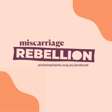
EPISODE 12: Miscarriage, Grief and Pregnancy After Loss with Sarah Davidson
Today we share a deeply moving episode featuring the incredible Sarah Davidson, known as @spoonful_of_sarah on Instagram and host of the @seize_the_yay podcast.
Sarah generously opens up about her experience, navigating the challenging terrain of early pregnancy loss and her current pregnancy after loss. Her story is a testament to resilience and hope, offering solace and encouragement.
This episode beautifully explores themes of grief, communication, and moving forward as a couple, offering valuable insights for anyone on a similar journey.
At Pink Elephants, we recognise and validate the diverse experiences within the realm of pregnancy loss. Whether you’re facing recurrent losses or embarking on the hopeful journey after a single loss, this episode aims to foster empathy and understanding.
Get in touch with Sarah: https://instagram.com/spoonful_of_sarah?igshid=NGVhN2U2NjQ0Yg==
EARLY PREGNANCY LOSS SUPPORT
If you or someone you know has experienced miscarriage or early pregnancy loss, please know you are not alone.
- For crisis support, please call Lifeline - 13 11 14.
- Access all our support
- Connect with Peer Support
- Join Online Communities
- Emotional Support Resources
- Follow @pinkelephantssupport
STACEY JUNE LEWIS
If you’d like to reach out to Stacey for counselling she is currently taking new clients. Find out more via her Website or Instagram.
You can also follow her personal Instagram account where she shares some of her lived experience.
JOIN THE MISCARRIAGE REBELLION
Pink Elephants believe everyone deserves support following the loss of their baby.
We have been providing support to many ten's of thousands of people for nearly 8 years, raising funds through generous donors. We now need ongoing Government support to empower our circle of support.
We are calling on the Government to provide us with $1.6million over 4 years to help bridge the gap. Sign our petition.
Early pregnancy loss is not just a private grief, but a national issue that requires collective empathy, awareness, and action. By recognising and addressing this, we can make meaningful change in the lives of 100,000+ women who experience early pregnancy loss every year.
SUBSCRIBE
Please make sure you subscribe and leave a 5 star review to help us connect with more people.


